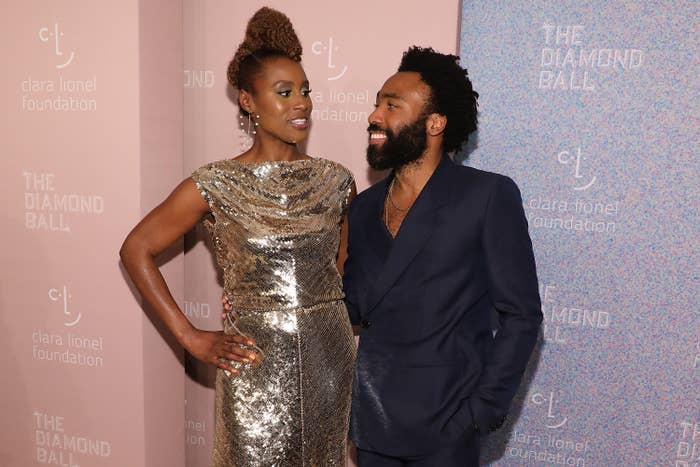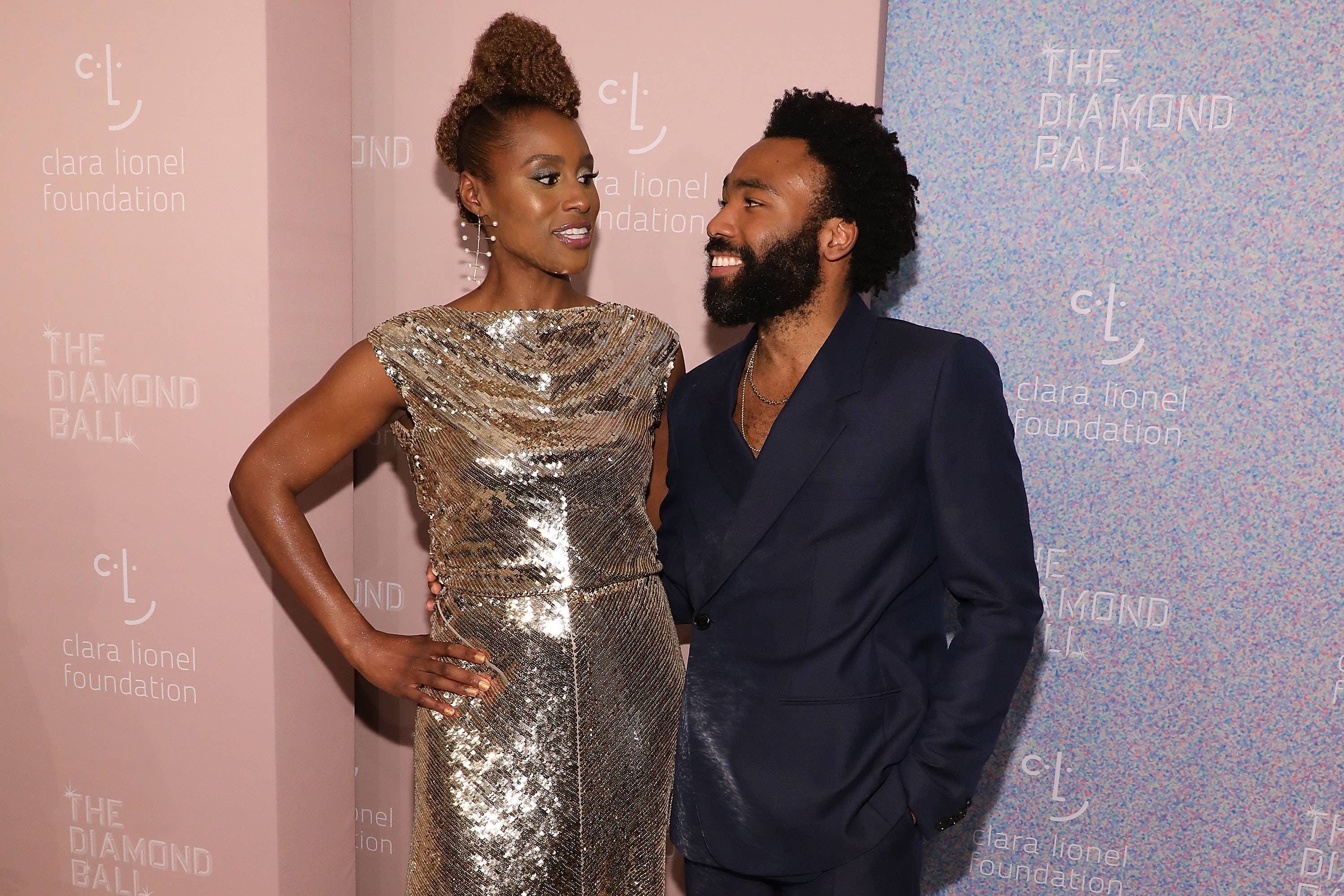
This year, TV critics struck a rare note of unity in agreeing that 2018 was a bad year for TV.
you know what, it was a bad year for TV shows!
I am happily having a DM conversation about how there is nothing good on TV. It is making me feel much better about how cranky I am. Bring me a really terrific show, favorite medium! I’m down on my knees.
I just typed out my top 10 TV of 2018 list for the first time, and just seeing it feels like a dark transgression against my craft.
No, these critics aren’t outliers. Only three narrative shows scored 90 or higher on Metaritic: Big Mouth, Atlanta, and The Americans. Fewer than 20 shows received an 80 or higher.
Looking at critics top ten lists for 2018, the same shows tend to repeat again and again, an indicator that the competition was not stiff. Regardless of which publication you read, you probably saw some combination of Killing Eve, The Americans, Barry, Sharp Objects, GLOW, Homecoming, Better Call Saul, Bojack Horseman, The Good Place, The Good Fight, and Pose on critics’ lists, and you probably scrolled down to see Atlanta in the number one spot.
Over 500 scripted TV shows aired in 2018, and yet almost every critic was in lockstep on what the best shows were. Okay, it wasn’t a great year for TV.
No matter how you look at it, it is hard to say that this was a good year for television, but that may not be a bad thing. It appears that the golden age of television has come to an end. But, that also may not be a bad thing. For several years, it has felt like we were at the end of an era. But, now, finally, it feels like a new era in television has begun.
For about a decade, two types of television shows have dominated critics lists and awards conversations. In drama, we had the “difficult man” narrative begun by Mad Men in 2007 and Breaking Bad in 2008, in which we watched an anti-hero try to do good things, but ultimately do very bad things. The true beginning of this genre came in 1999 with The Sopranos, and it seems after 20 years, the reign of the difficult man is coming to an end. In comedy, we had the era of the “comedy auteur” in which a well-known comedian played the part of the sad clown with heavy doses of absurd and introspective ennui. This type of show was pioneered by Louis C.K.’s Louie, which began in 2010.
The era of the difficult man gave us acclaimed shows like Mad Men, Breaking Bad, Boardwalk Empire, Halt and Catch Fire, Justified, Ozark, Mr. Robot, House of Cards, True Detective, The Knick, Sons of Anarchy, Bloodline, and Rectify. For a nod towards gender equality, we got a handful of difficult woman shows, including Orange is the New Black, The Americans, and Weeds.
There weren’t quite as many comedy auteur shows, but after Louie, we got Master of None, Maron, Lady Dynamite, Baskets, One Mississippi, Better Things, Crashing, Difficult People, Broad City, and Atlanta, the latest and greatest of the genre.
With Louis C.K. disgraced and the “difficult [white] man” becoming an almost absurd and retrograde idea in the Trump era, television is finally looking to redefine prestige television. While the so-called golden era is over, it has been replaced with an era of experimentation and diversity that was absent in the heyday of Don Draper and Walter White. It is telling a number of men involved with these shows have been accused of sexual misconduct in the real world. In television, as in public life, 2018 was a year in which society decided it would no longer toil in the shadow of the same old white men. No longer, it seems, will we forgive their excesses, onscreen or off.
The only difficult man show to crack critics top-ten lists in 2018 is the Breaking Bad spin-off Better Call Saul. Saul, though, plays as a commentary on this bygone era. While Saul Goodman’s predecessors were badasses who loved to drink whiskey and blow shit up, Jimmy McGill often comes off as pathetic, preferring paperwork errors and petty schemes to the means to his devious ends. Atlanta, the only comedy auteur show to make this year’s top ten, similarly calls out the unbearable whiteness and maleness of similar shows that have become before it.
If we put those two shows aside, it really does feel like we’re on to something new. Just describing some of the best-reviewed shows of the year illustrates the level of creativity that is starting to happen in TV. You’ve got the animated puberty monsters of Big Mouth, the LGBTQ fabulosity of Pose, the charged cat-and-mouse games of Kiling Eve, the 19th-century British naval insanity of The Terror, the superhero deconstruction of Legion, and the gonzo chill of Lodge 49. Suffice it to say, 2018 offered a lot of things that we have never seen on TV before.
With innovation, however, comes inevitable failure. An era that yields uncompromising yet fully formed breakthroughs like Killing Eve and Atlanta will also yield a slew of noble missteps. Maniac certainly offered a unique and brilliant creative vision, but you couldn’t always follow it. The Assassination Of Gianni Versace was sprawling and bold, but often felt a bit too sprawling, bouncing from locale to locale, hanging so much on the psychopathic Andrew Cunanan (Darren Criss). Pose put together a unique cast, but in doing so, had to rely on some less experienced actors asked to grow into their roles. Kidding, Who is America?, The Romanoffs, Legion, Dear White People, Random Acts of Flyness, and Haunting of Hill House are just some of the shows to take bold swings at changing TV as we know it and yielded an imperfect product.
This more adventurous era in storytelling is a result of a more varied media landscape. There are so many places creating so much content that there is truly something for everyone. However, it is difficult to distribute experienced showrunners, directors, actors, and below the line crew across 500 shows without some poor fits and inexperienced hands here and there. Networks are also producing so much content that the legendarily-careful curation that HBO and FX pride themselves on just can’t be repeated by executives at streamers churning out shows on a weekly basis.
We are in an era where there is a clamoring for new voices. Diversity and perspective suddenly have more cache in Hollywood, as networks fight to serve niche audiences that have traditionally been ignored. The result has been elevating young, fresh voices. This moment is long overdue, but the downside to this is that young also means inexperienced. This new class of artists needs the time to grow into their opportunities. It’s easy to forget Donald Glover (Atlanta), Phoebe Waller-Bridge (Killing Eve), Bill Hader (Barry), Issa Rae (Insecure), and many other young creators simply don’t have the years of experience that Vince Gillian and Matthew Weiner had. Gilligan wrote on four TV shows and wrote four movies before Breaking Bad, while Weiner racked up a half-dozen TV credits before he attempted Mad Men.
It has often been said that there is too much TV. It has also been said that critics and social media audiences are boosting shows unnecessarily in hopes of pretending that the golden age isn’t over. Both of these claims probably have some truth to them: there are a lot of TV shows and a lot of people invested in those TV shows. It is also true that we shouldn’t judge 2018 by 2013 standards.
There are a lot more interesting and daring shows on the air now than there were five years ago. In 2013, critics awarded six “difficult man/woman” critical top ten status: Mad Men, Orange is the New Black, Breaking Bad, House of Cards, The Americans, and Justified. You could argue that The Good Wife, Masters of Sex, and Enlightened were close to this genre. Only Game of Thrones broke the mold that year, and, it’s hard to argue that show doesn’t have a difficult man or two.
No, we don’t have Breaking Bad and Mad Men anymore. But, there is something to be said for stepping out of the shadow of difficult men.

